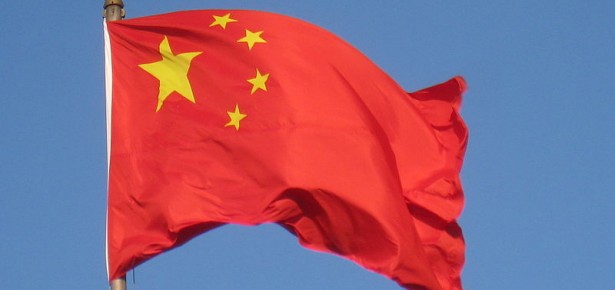
The First Amendment is commonly understood to provide various protections for Americans’ domestic expressive and religious rights. However, the First Amendment also has an important transborder dimension. Its values, principles, and protections transcend territorial boundaries. This is a central theme of my recently published work, The Cosmopolitan First Amendment: Protecting Transborder Expressive and Religious Liberties.
Recent events involving China highlight the First Amendment’s cosmopolitan character. During her recent visit to China, First Lady Michelle Obama was not scheduled to deliver any major addresses on the topic of human rights. She made some news, however, when she told an audience of Chinese students that in the United States, “the right to say what we think and worship as we choose” are fundamental rights. Meanwhile, as Mrs. Obama was visiting China, U.S. citizens received word that their lawsuit against Baidu, a prominent Chinese website and search engine, had been dismissed by a federal judge. The plaintiffs alleged that Baidu had violated their rights to access pro-democracy information on the Internet by blocking search results. A federal district court in New York ruled in favor of Baidu – on First Amendment free speech grounds.
Mrs. Obama’s speech continued the American tradition of communicating the importance of freedoms of speech, press, religion, and the free flow of information to the rest of the world. Making the point while visiting an authoritarian nation, one which continues to censor and punish political expression, was critically important. Of course, the limits of a transnational approach that relies on diplomacy and persuasion are many and obvious. Consider that democracies the world over have expressly rejected First Amendment free speech doctrines, including the special rules that apply to criticism of government officials. China is not about to adopt a system of robust protection for criticism of its public officials. Indeed, CCTV, the Chinese state broadcaster, censored the First Lady’s remarks about free speech. This sort of resistance ought not to deter American officials from touting the benefits of the free exchange of ideas, the need for robust press rights, and the values of self-government. While Mrs. Obama extolled the virtues of free expression and religious liberty, she was also careful to express respect for foreign cultures. The First Lady rightly did not insist that America’s way is best, superior, or exceptionally correct. She acknowledged that Americans too often live their ideals – including those relating to First Amendment liberties – imperfectly. Most importantly, Mrs. Obama did not suggest that the First Amendment itself ought to be exported to or transplanted in cultures that have their own unique histories, traditions, and values.
The lawsuit against Baidu teaches a different, but related, lesson. If the United States wants the world to respect and admire its tradition of freedom of expression and perhaps adopt its basic principles, it must sometimes extend its protections to foreign visitors and speakers who do not share Americans’ ideals regarding basic rights. It must, as Mrs. Obama suggested, live its ideals. Much of the legal analysis in the Baidu case turns on the question whether search results constitute protected expression (an issue that most commentators have answered in the affirmative, as did the district court). However, the broader implications of the case ought not to be overlooked. As the district court stated, “Plaintiffs’ efforts to hold Baidu accountable in a court of law for its editorial judgments about what political ideas to promote cannot be squared with the First Amendment.” The court rightly concluded that there was no irony in extending First Amendment protections to Baidu. This is because the First Amendment does not guarantee that any idea will go untested in the marketplace of ideas. Just as Americans are free to advocate in favor of democracy and freedom, Baidu (like China) may use its expressive power to advocate in favor of forms of government other than democracy.
The world’s peoples will continue to look to the First Amendment not only for its legal protection, but for inspiration in the face of censorship and repression. What the people of the world will need – indeed, what they have always needed – in order to prevail against such forces is a repository of wisdom and experience that demonstrates these basic things: Why freedom must prevail over repression; why access to information is a universal good; why respect for expressive and religious pluralism is critical to global peace; and why self-governance and self-determination are the destiny of all mankind. These are the familiar lessons of the First Amendment. We ought to continue to share them with the world community – not in the hope that they will adopt America’s standards, but to the end that they might be inspired by the First Amendment’s principles.
Latest Comments
Have your say!